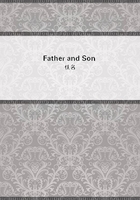
第31章
On Christmas Day of this year 1857 our villa saw a very unusual sight. My Father had given strictest charge that no difference whatever was to be made in our meals on that day; the dinner was to be neither more copious than usual nor less so. He was obeyed, but the servants, secretly rebellious, made a small plum-pudding for themselves. (I discovered afterwards, with pain, that Miss Marks received a slice of it in her boudoir.) Early in the afternoon, the maids,--of whom we were now advanced to keeping two,--kindly remarked that 'the poor dear child ought to have a bit, anyhow', and wheedled me into the kitchen, where I ate a slice of plum-pudding. Shortly I began to feel that pain inside which in my frail state was inevitable, and my conscience smote me violently. At length I could bear my spiritual anguish no longer, and bursting into the study I called out: 'Oh! Papa, Papa, I have eaten of flesh offered to idols!' It took some time, between my sobs, to explain what had happened. Then my Father sternly said: ' Where is the accursed thing?' I explained that as much as was left of it was still on the kitchen table. He took me by the hand, and ran with me into the midst of the startled servants, seized what remained of the pudding, and with the plate in one hand and me still tight in the other, ran until we reached the dust-heap, when he flung the idolatrous confectionery on to the middle of the ashes, and then raked it deep down into the mass. The suddenness, the violence, the velocity of this extraordinary act made an impression on my memory which nothing will ever efface.
The key is lost by which I might unlock the perverse malady from which my Father's conscience seemed to suffer during the whole of this melancholy winter. But I think that a dislocation of his intellectual system had a great deal to do with it. Up to this point in his career, he had, as we have seen, nourished the delusion that science and revelation could be mutually justified, that some sort of compromise was possible. With great and ever greater distinctness, his investigations had shown him that in all departments of organic nature there are visible the evidences of slow modification of forms, of the type developed by the pressure and practice of aeons. This conviction lead been borne in upon him until it was positively irresistible. Where was his place, then, as a sincere and accurate observer? Manifestly, it was with the pioneers of the new truth, it was with Darwin, Wallace and Hooker. But did not the second chapter of 'Genesis' say that in six days the heavens and earth were finished, and the host of them, and that on the seventh day God ended his work which he had made?
Here was a dilemma! Geology certainly seemed to be true, but the Bible, which was God's word, was true. If the Bible said that all things in Heaven and Earth were created in six days, created in six days they were,--in six literal days of twenty-four hours each. The evidences of spontaneous variation of form, acting, over an immense space of time, upon ever-modifying organic structures, seemed overwhelming, but they must either be brought into line with the six-day labour of creation, or they must be rejected. I have already shown how my Father worked out the ingenious 'Omphalos' theory in order to justify himself as a strictly scientific observer who was also a humble slave of revelation. But the old convention and the new rebellion would alike have none of his compromise.
To a mind so acute and at the same time so narrow as that of my Father--a mind which is all logical and positive without breadth, without suppleness and without imagination--to be subjected to a check of this kind is agony. It has not the relief of a smaller nature, which escapes from the dilemma by some foggy formula; nor the resolution of a larger nature to take to its wings and surmount the obstacle. My Father, although half suffocated by the emotion of being lifted, as it were, on the great biological wave, never dreamed of letting go his clutch of the ancient tradition, but hung there, strained and buffeted. It is extraordinary that he--an 'honest hodman of science', as Huxley once called him--should not have been content to allow others, whose horizons were wider than his could be, to pursue those purely intellectual surveys for which he had no species of aptitude. As a collector of facts and marshaller of observations, he had not a rival in that age; his very absence of imagination aided him in this work. But he was more an attorney than philosopher, and he lacked that sublime humility which is the crown of genius. For, this obstinate persuasion that he alone knew the mind of God, that he alone could interpret the designs of the Creator, what did it result from if not from a congenital lack of that highest modesty which replies 'I do not know' even to the questions which Faith, with menacing forger, insists on having most positively answered?